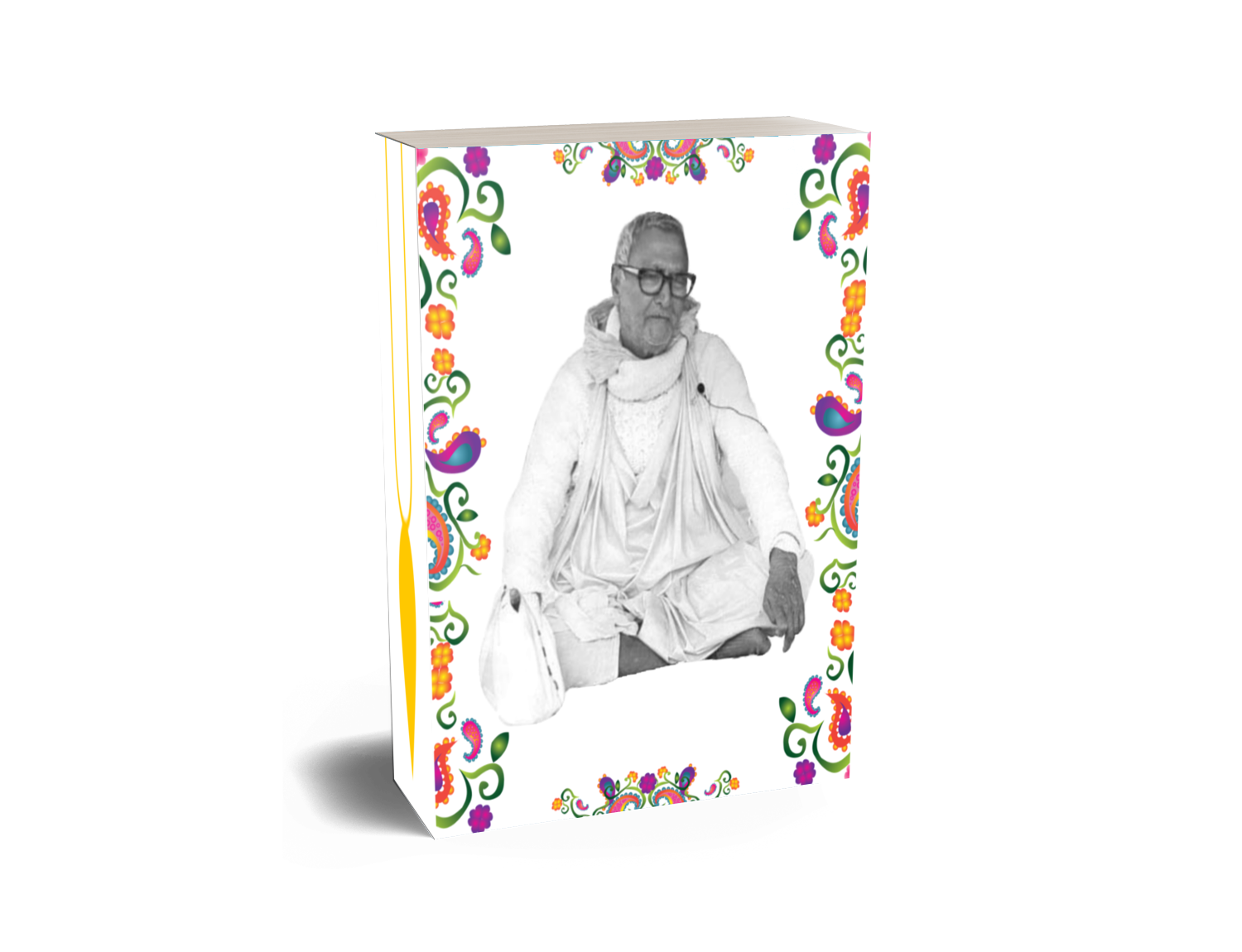

The following is an excerpt from the book, Encounters With Divinity by Śrīla Bhakti Rakṣaka Śrīdhar Mahārāja (www.gosai.com/writings/encounters-with-divinity)
Ekādaśī is considered to be the favourite day of Kṛṣṇa, and it is when devotees refrain from material activities.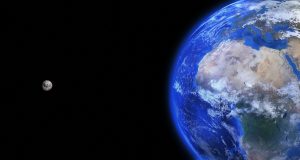 Ekādaśī is aprākṛta. Aprākṛta means that which is like prākṛta, but is supramundane. We are warned that ekādaśī is not mundane, though it seems to be. Because it is influenced by the moon, ekādaśī seems to be mundane. The heat of the world and the watery portion of the body increase due to the influence of the moon, just as the high tide and low tide of the ocean are affected by the moon. As we approach the full moon and the new moon, the watery portion of our bodies is enhanced by the movement of the Earth, the moon, and the sun, and thereby the enjoying spirit is also developed. My Guru Mahārāja mentioned these things in a lecture at Kurukṣetra in 1927—the scientific basis is that by the movement of the Earth, the moon planet and the sun, the heat becomes less, and the exciting rasa (the water in our body) is enhanced, and thereby it increases the tendency of enjoyment.
Ekādaśī is aprākṛta. Aprākṛta means that which is like prākṛta, but is supramundane. We are warned that ekādaśī is not mundane, though it seems to be. Because it is influenced by the moon, ekādaśī seems to be mundane. The heat of the world and the watery portion of the body increase due to the influence of the moon, just as the high tide and low tide of the ocean are affected by the moon. As we approach the full moon and the new moon, the watery portion of our bodies is enhanced by the movement of the Earth, the moon, and the sun, and thereby the enjoying spirit is also developed. My Guru Mahārāja mentioned these things in a lecture at Kurukṣetra in 1927—the scientific basis is that by the movement of the Earth, the moon planet and the sun, the heat becomes less, and the exciting rasa (the water in our body) is enhanced, and thereby it increases the tendency of enjoyment.
So, fasting is necessary to meet with that external movement of nature. Fasting can save us from that peculiar 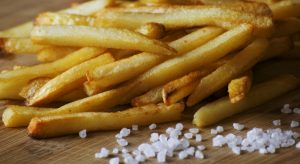 reaction. Fasting has been recommended, and especially, if one can’t fast at all, then one may take some process of diet that will give less cause for excitement. Therefore, one may take anukalpa (non–grains). We fast
reaction. Fasting has been recommended, and especially, if one can’t fast at all, then one may take some process of diet that will give less cause for excitement. Therefore, one may take anukalpa (non–grains). We fast
to check the senses, because the senses, by the natural flow, become more intense at that time. The result is that one will be excited and want to enjoy – to encroach on the environment. This unfair encroachment of one’s own self is to be controlled; therefore, this fasting has been recommended – this is one way.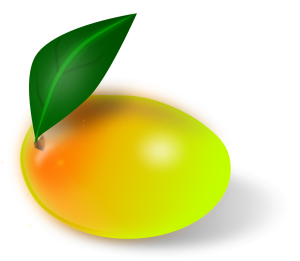
We take some types of food, and not others, because they are considered to be less injurious, and less exciting to the body. Also, it is mentioned in Hari–bhakti–vilāsa that some particular sins are fond of taking shelter in those foods that we reject. Pāpa means a type of sin that is very fond of taking shelter in grains and in places that we surely want to avoid. First–class fasting means without even taking water (nirjala). Those who cannot do without food may take fruit, roots, and milk.
Also, from the spiritual perspective, Kṛṣṇa Himself also feels more necessity for enjoyment, and when Kṛṣṇa feels more necessity, the devotees have a greater chance to offer service. The time is more valuable for them, because Kṛṣṇa wants to enjoy, and at that time, devotees should be busy supplying the things for His enjoyment – so much so that they won’t have any time for their own necessities. So, the first reason is to please Kṛṣṇa and the secondary reason is that by fasting, we can make our body dry and so our enjoying spirit will be lessened. This is the general explanation.
There are so many other things also. Everything is conscious; everything is personal; and Ekādaśī has her own personal character, and she devotes herself with all her company in the service of Kṛṣṇa. She does not take any food or anything else, and also does not allow others in her group to take food or waste time, but is always engaged in the service of Kṛṣṇa.
We are told that Ekādaśī and Dvādaśī are favoured by Hari—the underlying cause is already explained. Hari will be pleased with any small service performed on these days. So, Dvādaśī and Ekādaśī are both considered the favourite days of Kṛṣṇa. Ekādaśī observance is compulsory; though Dvādaśī is also honoured as the favourite of Hari, still Ekādaśī has the preference. Dvādaśī has preference over Ekādaśī only in eight cases, determined by the combination of nakṣatra, tithi, etc. – when we observe Mahā–Dvādaśī and not Ekādaśī.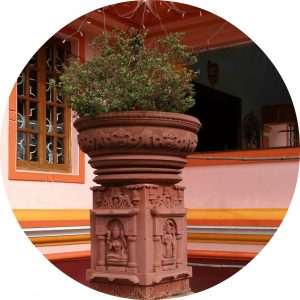
On Ekādaśī and Dvādaśī, even a little service gives some greater remuneration. Remuneration means that our serving attitude and our earnestness will be enhanced at that particular time. In a deeper sense, this means that Hari, at that time, wants to accept more service. That is the fortune of the servitors – that Hari demands more of the servitors – so the importance for the servitors increases at that time during Ekādaśī and Dvādaśī. On Dvādaśī, we do not pick the leaves of tulasī because it is considered that Tulasī–devī has observed fasting on Ekādaśī.
It is also noted that service is the first consideration. If I fast and do not take any water, then I may have to lie down and not be able to do any service to the Lord. That is not desirable. So, to take anukalpa and do service to the Lord is better.
Service is better than sitting idly. So, if prasāda–sevā is taken as service, this is best. But at the same time, the individual position of a devotee should be considered. The Sahajiyās do not observe Ekādaśī fasting at all. They say, “Oh, we are in Vṛndāvana—no fasting here!” But Śrīla Prabhupāda did not like this; the Sahajiyā, in the name of kṛṣṇa–bhakti, goes on feeding the senses. But when necessary for the service of Kṛṣṇa, to keep up the body, we take prasādam; we don’t like that by fasting the loss of energy may occur. In this way we honour Ekādaśī. If fasting does not hamper our service, we may go on fasting.
Once on Janmāṣṭamī day, Hayagrīva Brahmacārī (later Mādhava Mahārāja) had to arrange for Prabhupāda to 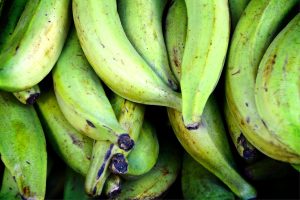 go to Mathurā, in order to observe the Puruṣottama–māsa. Hayagrīva was sent one day earlier to hire a suitable house, and that day happened to be Janmāṣṭamī. Prabhupāda asked his own cook to feed Hayagrīva rice on Janmāṣṭamī day. “He will have to take a tedious journey and his energy will be wasted; he has an important duty to arrange that house there.” That was his order. But Hayagrīva hesitated and the cook also hesitated. Anyhow, he did not take rice on Janmāṣṭamī; instead, he took sābu (tapioca), plantain, and curd.
go to Mathurā, in order to observe the Puruṣottama–māsa. Hayagrīva was sent one day earlier to hire a suitable house, and that day happened to be Janmāṣṭamī. Prabhupāda asked his own cook to feed Hayagrīva rice on Janmāṣṭamī day. “He will have to take a tedious journey and his energy will be wasted; he has an important duty to arrange that house there.” That was his order. But Hayagrīva hesitated and the cook also hesitated. Anyhow, he did not take rice on Janmāṣṭamī; instead, he took sābu (tapioca), plantain, and curd.
However, if Professor Sanyal had been in such a position, he would have certainly taken rice—he was so much adherent and extremely submissive to Prabhupāda’s order. He would have said, “Oh, Prabhupāda has asked me to take rice, so I must take rice!” That was his line of thought. But Hayagrīva hesitated, “No, no, it is not necessary. I am strong enough; I can do my duty.” Also, when Prabhupāda wanted to eat something on fasting days, he would take anukalpa.
My Guru Mahārāja felt that you will get the maximum energy if you take good food and you do good service. That was his maxim. Kṛṣṇa is not a liquidated party. Take full prasādam and do full service. Whatever is necessary, take it for the cause of Kṛṣṇa—not for your own cause. You are Kṛṣṇa’s, so if you grow weak and your service is hampered, then you will be the loser. “Better that my soldiers are well fed and working well” That was my Guru Mahārāja’s principle.

The following is an excerpt from a lecture by Śrīla Bhaƙtivedānta Nārāyaṇa Mahārāja in Hawaii, on May 13, 2000 (Purebhakti.com)

Do you know the reason why waves come and go, and why on special days – from Ekādaśī to Pūrṇimā (Full Moon) and Ekādaśī to Amāvasyā (New Moon) – waves are very high? Even if there is no wind, still, from Ekādaśī to the full moon and dark moon, the water increases and there are so many high waves. Why is this? It is due to the moon. Water and waves increase due to the moon. The moon comes nearer on those days, and extracts the water.
Similarly there is some water in our stomachs and bodies. Therefore, if we are not very careful in these five days in every fifteen, the moon will increase all your diseases. You can see in hospitals that most people die within these five days.
We have rasa, or water, within us, and wherever there is liquid, the moon attracts it. Thus, all kinds of diseases 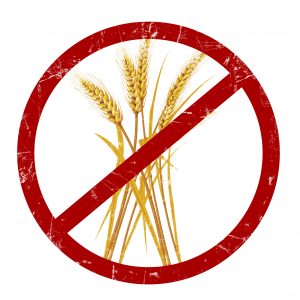 increase. However, if we are very careful by following the ancient Indian (or Vedic) process of Ekādaśī, this can be controlled very easily. How do we do this? By not drinking water and taking grains. If you are weak, and you are taking water or juice but not grains, then you can save yourself. If you are taking any preparation made from grains, it will absorb the water and become saturated with that water. If you put a stone or wood in water, this will not absorb water, whereas if you give any blotting paper or cotton, it will absorb so much that it will remain fully saturated for the entire day. It will not dry, even in the sun. If you drink water but do not take grains, then like a stone, you will not be affected. However if you take grains, the moon will attract the water, those grains will become saturated with the water, and so many kinds of sickness will come. You may even die; so be careful about this.
increase. However, if we are very careful by following the ancient Indian (or Vedic) process of Ekādaśī, this can be controlled very easily. How do we do this? By not drinking water and taking grains. If you are weak, and you are taking water or juice but not grains, then you can save yourself. If you are taking any preparation made from grains, it will absorb the water and become saturated with that water. If you put a stone or wood in water, this will not absorb water, whereas if you give any blotting paper or cotton, it will absorb so much that it will remain fully saturated for the entire day. It will not dry, even in the sun. If you drink water but do not take grains, then like a stone, you will not be affected. However if you take grains, the moon will attract the water, those grains will become saturated with the water, and so many kinds of sickness will come. You may even die; so be careful about this.
Here is another analogy to help us understand. The government allows that within each week there is a one- or two-day holiday. Why have they made one or two holidays? Why not work for all seven days of each week? If you work every day of the seven days, you will be tired and you won’t be able to continue the next day. Similarly, the stomach contains so many worms, which digest what we eat. If you do not give them rest, they are not able to continue digesting and they will become diseased. The whole world is suffering due to not giving the stomach any rest.
Moreover, the most important reason to follow Ekādaśī is that Ekādaśī is Kṛṣṇa Himself. Kṛṣṇa has become Ekādaśī. He descends to this world on Ekādaśī day, looks after all the people who are observing its vows, and gives special mercy to them. So we must observe Ekādaśī.

The following is an excerpt from a lecture by Śrīla Bhaƙtivedānta Nārāyaṇa Mahārāja in Los Angeles, California, on June 5, 1998 (Purebhakti.com)
Not following Ekādaśī will be harmful to us. On Ekādaśī the moon comes closer to the Earth, and therefore it  attracts water from everywhere – from the sea, from the river, from our bodies, and so on. If one takes any grains on this day, the grains become like blotting paper. If you drink water, the water will very soon pass out from the body. However, if you take grains and water together, the grains become like blotting paper or cotton – grains hold the water.
attracts water from everywhere – from the sea, from the river, from our bodies, and so on. If one takes any grains on this day, the grains become like blotting paper. If you drink water, the water will very soon pass out from the body. However, if you take grains and water together, the grains become like blotting paper or cotton – grains hold the water.
Even if you squeeze the cotton, some water will remain. Similarly, if you eat any grain, it becomes like a sponge. It will hold a lot of water. The moon will attract that water, and all your diseases will increase. You can see this in the sea or ocean. At this time there are high tides and the waves become very high.
Similarly, it is like this in our bodies. If a person already has some disease, his disease increases from Ekādaśī to Pūrṇimā and Ekādaśī to Āmāvāsya. We have tested this in hospitals, and we see that of those who die in hospitals, most of them die on these days.
Control your eating on Ekādaśī, and do not take grains. It is better to perform nirjala, complete fasting, with no water. Today in India, so many people observe nirjala Ekādaśī – even young boys, and even when the temperature outside is 48 degrees Celsius. Still these people observe nirjala. No harm at all comes to such persons by this; rather, this fasting removes all diseases.

The following is an excerpt from a lecture by Śrīla Bhaƙtivedānta Nārāyaṇa Mahārāja in Badger, California, on June 20, 1998 (Purebhakti.com)
There are two gains in this: external and internal. On this very day, until the full moon or new moon day, if you go  to the ocean you will see very high waves. Why? The moon has some concern with water. We have water in our bodies. If you do not control what you eat and drink on the Ekādaśī day (the eleventh day of the full and new moon), then whatever disease you have may increase from Ekādaśī up to the full moon or new moon. If you fully fast, the moon will have no bad effect, but if you are taking grains, capātīs, bread, and too much water, then it will have an effect. You can take the accounts in big hospitals and see that so many more patients die from Ekādaśī to the full moon or new moon day, and after that it is ‘normal’ again.
to the ocean you will see very high waves. Why? The moon has some concern with water. We have water in our bodies. If you do not control what you eat and drink on the Ekādaśī day (the eleventh day of the full and new moon), then whatever disease you have may increase from Ekādaśī up to the full moon or new moon. If you fully fast, the moon will have no bad effect, but if you are taking grains, capātīs, bread, and too much water, then it will have an effect. You can take the accounts in big hospitals and see that so many more patients die from Ekādaśī to the full moon or new moon day, and after that it is ‘normal’ again.
If you are not eating anything you are not supposed to eat, then all things will be controlled and a good effect will come. Your body will be very strong, healthy, and light, and your digestion will be okay. On the other hand, if you are eating bread, for example, it acts like blotting paper. If you drink water, it will pass out of the body as urine or sweat, just as if you pour water on a stone, cloth, or oil – it will go away; but if you put a heap of cotton in water, that cotton will take days to dry. Even if you squeeze that ball of cotton, it will still contain some water.
[From Śrīla Bhaƙtivedānta Nārāyaṇa Mahārāja’s June 5, 1998 lecture on Ekādaśī: Not following Ekādaśī will be harmful to us. On Ekādaśī the moon comes closer to the Earth, and therefore it attracts water from everywhere – from the sea, from the river, from our bodies, and so on. If one takes any grains on this day, the grains become like blotting paper. If you drink water, the water will very soon pass out from the body. However, if you take grains and water together, the grains become like blotting paper or cotton and hold the water.
Even if you squeeze the cotton, some water will remain. Similarly, if you eat any grain, that grain becomes like a sponge; it will hold a lot of water. The moon will attract that water and all your diseases will increase. You can see this in the sea or ocean. At this time there are high tides and the waves also become very high.]
Our ṛṣis (sages) were realized in these topics –both materially and spiritually. It has been told that we should not 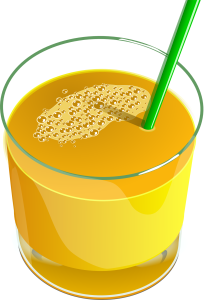 take any grain on Ekādaśī. If by not taking grains you become hungry and if you are a male or female of Kali-yuga, then no harm, you can take water or juice; but not at every minute: first grape juice, then rābaḍī, then malāī, then mango juice, then apple juice, and after that very, very good capātīs with potato flour – eating, eating, and eating. This will have a bad effect on that Ekādaśī day.
take any grain on Ekādaśī. If by not taking grains you become hungry and if you are a male or female of Kali-yuga, then no harm, you can take water or juice; but not at every minute: first grape juice, then rābaḍī, then malāī, then mango juice, then apple juice, and after that very, very good capātīs with potato flour – eating, eating, and eating. This will have a bad effect on that Ekādaśī day.
You can take water twice a day on Ekādaśī. Or, if you can’t just do that, you can also take fruits and vegetables once in the evening. If you are feeling weak, then you can take water and a little food two times. But don’t take much, otherwise you will not get the fruit of Ekādaśī. Externally, for worldly reasons, this fasting is good for your health. Also, for poor persons, if one drinks water and take nothing else on that Ekādaśī day, they don’t have to spend money. If one takes so many things, like juice and dried fruits, it will cost so much.

The following is an excerpt from a lecture by Śrīla Bhaƙtivedānta Nārāyaṇa Mahārāja in Turnbridge, England, on July 9, 1999 (Purebhakti.com)
More concessions have been given to Western devotees because they are weaker in body. Otherwise, they are very strong. I have seen so many Western devotees, especially lady devotees, who fast the entire day and night and not sleeping.
There are so many benefits from observing Ekādaśī. In colleges, hospitals and all workplaces, we see that leave is given to students and workers once a week so they can take rest, and the next day they can work with full energy. Otherwise, they would not be able to continue their activities over the years. They must take some rest.
This is also true regarding our stomachs. In our stomach there are some bacteria that are helpful for our health. These bacteria are always working for our digestion, so if they become sick or tired, then you will become sick. We should try and give them rest for one day at least, so that the next day they will work again with great energy.
Secondly, you see that in the ocean, especially from Ekādaśī to Pūrṇimā, there are very large waves. This is because the moon attracts all the waters of this planet. Wherever there is water, the moon attracts it. In our body there is much water, and especially on Ekādaśī day the moon will attract it; if there is any disease, that disease will increase so much. It is best that we check these things, especially grains, corn, wheat, and things made by them.
 It has been said that sometimes you can take water, and there is no harm in that. If you put water on a stone, the stone will at once become dry again; all the water will disappear. On the other hand, if you pour water on some cotton or blotting paper, they will soak up the water and take hours to dry.
It has been said that sometimes you can take water, and there is no harm in that. If you put water on a stone, the stone will at once become dry again; all the water will disappear. On the other hand, if you pour water on some cotton or blotting paper, they will soak up the water and take hours to dry.
Preparations made from grains, wheat, rice, corn, and dāl are like cotton in our stomachs. The moon attracts that water in them and diseases increase. So many people die in hospitals from Ekādaśī to the full moon and Ekādaśī to the new moon. To check our diseases, it is very essential to follow Ekādaśī.
[From Śrīla Bhaƙtivedānta Nārāyaṇa Mahārāja’s June 5, 1998 lecture on Ekādaśī: Not following Ekādaśī will be harmful to us. On Ekādaśī, the moon comes closer to the Earth, and therefore it attracts water from everywhere – from the sea, from the river, from our bodies, and so on. If one takes any grains on this day, the grains become like blotting paper. If you drink water, the water will very soon pass out from the body. However, if you take grains and water together, the grains become like blotting paper or cotton – grains hold the water.
Even if you squeeze the cotton, some water will remain. Similarly, if you eat any grain, it becomes like a sponge. It will hold a lot of water. The moon will attract that water, and all your diseases will increase. You can see this in the sea or ocean. At this time there are high tides and the waves become very high.]
These are external reasons, for the body. I have told this to those who are attached to their bodies.
Even persons who do not believe in God should observe Ekādaśī. In India, all kinds of devotees follow Ekādaśī – Māyāvādīs (impersonalists), Śaivites (worshippers of Lord Śiva), Śāktas (worshippers of Durgā-Devī), and Gaṇeśa worshippers. Both ladies and males, and children follow, but nowadays everything is finishing. Almost everyone is avoiding Ekādaśī, as a very big storm from Western countries went to India and affected everywhere.
…
Śyāmarāṇī dāsī: Gurudeva, we always hear that we should not take grains on Ekādaśī because sins are stored 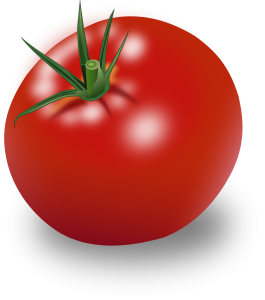 in them on that day, but why can we not take certain vegetables, like tomato and loki?
in them on that day, but why can we not take certain vegetables, like tomato and loki?
Śrīla Bhaƙtivedānta Nārāyaṇa Mahārāja: It is not like with grains. They do not have the qualities of grain, corn, wheat, and dāl [that they don’t act like blotting paper or a ball of cotton]. Especially it has been told, by a special story, that on the very day of Ekādaśī, all sins, including brahma-hatyā (the killing of a brāhmaṇa), mātŗ-hatyā (the killing of one’s mother), go-hatyā (the killing of a cow) take shelter in grains and the things prepared by grains. And in addition śastra prohibits taking certain vegetables and other foodstuffs*.
A concession has been made for the Western devotees and in India for weak persons. If you are not observing the rules and prohibitions, then all kinds of sin will come to you; and if you have some bhakti, it will be destroyed.
Weak persons can take something, as they like, but it must be within the foodstuffs allowed for Ekādaśī. Children can also take as they like, but their mother and father should take care that they only take fruits and other foods allotted for Ekādaśī.
*Scriptures like Hari–bhakti–vilāsa state that such foodstuffs create changes in the body and consciousness that are detrimental to the observance of Ekādaśī.
Sinful reactions don’t take shelter in foodstuffs other than grains and beans. Scriptures like Manu–saṁhitā and Manu–smṛti state that certain foodstuffs are prohibited on Ekādaśī because they change their qualities on that day, and thus their ingestion creates disturbances in the consciousness.
 *Ekādaśī
*Ekādaśī
The essence is to eat simply, once or twice, so that one can spend as much time as possible hearing, chanting and remembering Śrī Śrī Rādhā-Kṛṣṇa. Never eat meat, fish, eggs, onions, garlic, carrots, red lentils (masūr-dāl), green flat lentils, mushrooms or products thereof.
- Restricted foods on Ekādaśī:
- Tomatoes, eggplants, cauliflower, broccoli, bell peppers, beets, bitter melon (karela), loki, parmal, toroi, kunli, drumsticks, bindī (ladies’ fingers) and banana flowers
- Peas, chickpeas and all types of beans, including products made from beans (e.g., papadams, tofu, tempeh)
- All leafy vegetables (e.g., spinach, salads, cabbages) and leafy herbs like parsley, coriander leaves, celery and curry leaves
- Grains (e.g., millet, barley, farina, pasta, rice, corn) and all types of flour made from grains and beans (e.g., rice flour, chickpea flour, urad dāl flour)
- Starches from corn or grains, and products made from or mixed with these starches like baking soda, baking powder, certain soft drinks with corn syrup, custard, certain yoghurts and puddings, certain varieties of cream and cottage cheese, certain sweets and candies, and tapioca balls
- Oils made from grains (e.g., corn oil, mustard oil, sesame oil) and products fried in these oils (e.g., fried nuts, potato chips and other fried snack foods)
- Honey, and sweets made with starches
- Spices used on Ekādaśī: black pepper, fresh ginger, pure salt and fresh turmeric, all taken from a new and clean package
- Spices not used on Ekādaśī: hing (asofetida), sesame seeds, cumin, fenugreek, mustard, tamarind, fennel, cardamom and nutmeg
- Foods that can be taken all days of the year, including Ekādaśī and Cāturmāsya:
- All fruits (fresh and dried), all nuts and all oils made from nuts
- Potatoes, pumpkin, cucumber, radish, squash, lemon, avocado, olives, coconut, buckwheat, all sugars
- All pure milk products (except yoghurt during the 2nd month of Cāturmāsya and milk during the 3rd month)
- For sannyāsīs, brahmacārīs and vānaprasthas: shaving head and cutting nails is to be done on full moon days
Cāturmāsya
- Restricted foods during the entire four months of Cāturmāsya:
- Eggplants, tomatoes, loki, parmal, urad dāl and honey
- Particular foods that are restricted during each of the four months:
- First month: No leafy vegetables, such as spinach, salads of all types, cabbages of all types, kale, leafy herbs like coriander, mint, parsley, curry and powdered leafy herbs and teas
- Second month: No yoghurt (if one requires it for health, it can be mixed with water)
- Third month: No milk (if required, it can be mixed with a drop of lemon juice)
- Fourth month: No mustard oil or sesame seeds
Puruṣottama-māsa
Restricted foods during the month of Puruṣottama:
- Eggplants, tomatoes, loki, parmal, urad dāl, honey, mustard oil or sesame seeds
- No shaving for brahmacārīs and sannyāsīs
Image/Art made possible by Pixabay.com, Krishnapath.org and/or Bhaktiart.net








